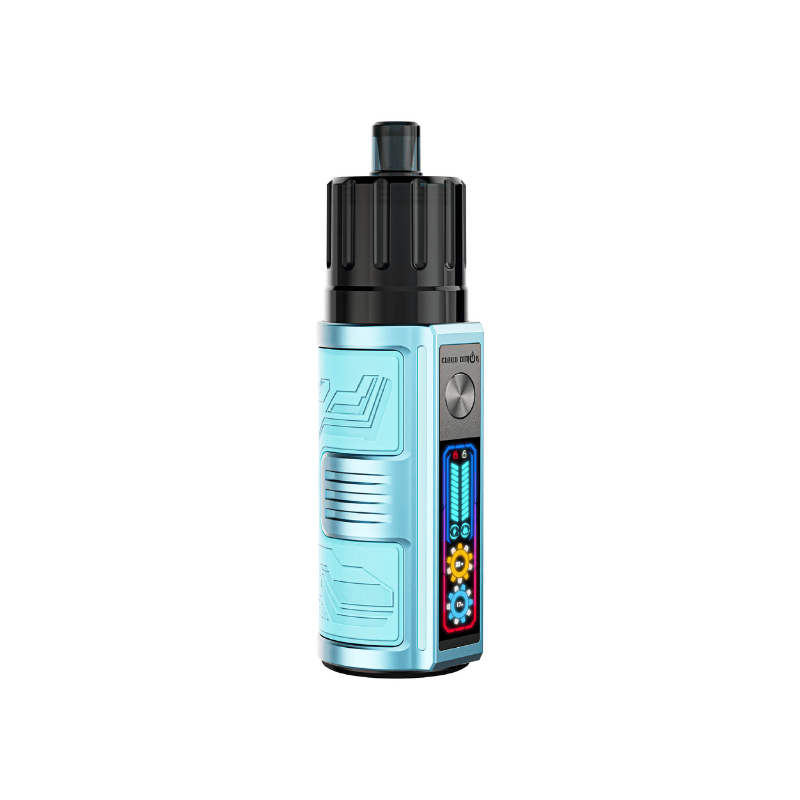Introduction
1. Contextual overview of the Vapes Gate controversy
The Vapes Gate controversy has sent shockwaves through the global vaping community. This contentious issue emerged as reports highlighted potential health risks, regulatory scrutiny, and industry practices that sparked fierce debate. It represents more than a scandal; it symbolizes a reckoning for the vaping sector, exposing vulnerabilities that were often overlooked.
2. Brief history and evolution of vaping leading to this point
Vaping began as an alternative to traditional cigarettes, offering smokers a perceived safer means to satisfy nicotine cravings. Over the past decade, it has evolved into a diverse market catering to hobbyists, ex-smokers, and even casual users. However, with growth came scrutiny. Regulatory battles, health concerns, and the allure of youth culture painted a complex portrait of the industry, leading up to the breaking point known as Vapes Gate.
3. The stakes: Why this could mark a turning point in vaping
For the industry, Vapes Gate represents a potential watershed moment. It raises questions about whether vaping can survive intensifying scrutiny, how companies will adapt, and if consumers will maintain trust. This turning point could reshape public perception, influence global policy, and dictate whether vaping remains a viable option or fades into the shadows of controversy.
The Origins and Unfolding of Vapes Gate
What triggered the controversy: Key events and players involved
The controversy began when alarming health issues were tied to unregulated or counterfeit vape products. High-profile incidents involving respiratory illnesses and unverified claims from various sources drew public attention. Key players included government bodies, health organizations, and the media, all clamoring to address perceived dangers.
The role of government bodies, industry leaders, and media coverage
Regulatory agencies launched crackdowns, focusing on unsafe products and marketing practices targeting youth. Meanwhile, industry leaders scrambled to defend their brands or distance themselves from shady practices. Media outlets amplified the situation with extensive coverage, often sensationalizing the dangers without distinguishing between legitimate and counterfeit products.
Public reactions and early industry responses
The public, understandably alarmed, pushed for stricter regulations. Many consumers shifted away from vaping or adopted more cautious behavior. Industry responses varied, from enhanced safety protocols to PR campaigns. Some manufacturers pledged compliance with stricter standards, while others struggled to adapt.
Impact on the Vaping Industry
Market disruptions: Sales bans, recalls, and lost revenue
Vape sales plummeted in many regions as bans and recalls took effect. Retailers faced crippling losses, while manufacturers were forced to navigate a minefield of compliance issues. Revenue losses and eroded consumer trust made this period one of the most challenging in the industry’s history.
Regulatory clampdowns and new legislation introduced due to Vapes Gate
New legislation aimed at curbing perceived risks led to tighter controls on product ingredients, marketing strategies, and sales channels. Regulatory loopholes that once allowed questionable products to thrive were closed, reshaping the landscape in a bid to protect public health.
Effects on manufacturers, retailers, and supply chains
Supply chains were also disrupted as compliance requirements caused delays and increased costs. Manufacturers needed to verify every step of their production process, while retailers faced dwindling consumer confidence. This reshaped business strategies across the board, forcing a more cautious approach.
Health and Safety Concerns Amplified
1. Health scares and the evidence behind the claims
Reports of severe respiratory illnesses linked to certain vape products escalated fears. While evidence pointed mainly to unregulated products, the perception of risk extended to all vapes. This health scare forced both consumers and regulators to take a harder look at what was being inhaled.
2. Scientific studies and debates on the risks highlighted during Vapes Gate
Scientists debated the validity of these health claims, with some studies indicating a lower risk compared to cigarettes and others raising red flags about specific compounds. The divide in scientific opinion only deepened public uncertainty, fueling calls for transparency and research.
3. How consumer safety perceptions are changing
Public perceptions shifted, with safety and quality control becoming paramount concerns. Trust in reputable brands grew while demand for strict oversight increased. Consumers became more discerning, valuing verified products over cheap alternatives.
Consumer Trust and Behavior Changes
How Vapes Gate is reshaping public trust in vaping
The controversy dented trust significantly. Many consumers opted for alternatives, reducing or quitting usage altogether. The industry’s future hinged on rebuilding credibility through improved safety standards and transparent marketing practices.
Shifts in vaping habits, preferences, and user demographics
Vaping habits changed as users sought out verified products and information. Preference for devices with better quality control and safer e-liquids became a priority. This shift also impacted user demographics, with fewer newcomers joining and existing users growing more cautious.
Case studies of consumer responses and adaptations
Real-world examples demonstrated resilience among some brands that leaned into compliance and quality assurances. Consumers who stayed loyal often cited transparency and trust as key factors. Other users shifted to alternatives like nicotine patches or regulated e-cigarettes.
More Products
For more e-cigarette product recommendations, why don’t you open and check it out?
Starry Sky
This is a young and trendy disposable electronic eye product.
Love Shisha
This is a 2024 high-end disposable e-cigarette product by CLOUD DIMOK.
GAS GPT
The new GAS GPT series is a trendy e-cigarette with upgraded capacity.
Global Ripple Effects
1. International reactions and regulatory impacts beyond the local market
Countries around the world began adopting similar regulations or modifying existing laws in response to Vapes Gate. Some imposed outright bans, while others worked to strike a balance between regulation and availability.
2. Comparisons to similar controversies in other regions
Parallels were drawn with previous controversies in the tobacco and cannabis industries, offering lessons on how markets adapt or crumble under scrutiny. Such comparisons underscored the need for proactive measures.
3. Collaboration between global health organizations
Global health bodies joined forces to share insights and best practices, recognizing that vaping is a global issue. Collaborative efforts sought to establish safer industry standards and prevent further crises.
Reactions from Pro-Vape and Advocacy Groups
Stances taken by vaping advocacy groups and influencers
Pro-vape advocates stood firm in their belief that regulated vaping was a less harmful alternative to smoking. They lobbied for balanced regulations and pushed back against overreach, arguing for the benefits of harm reduction.
How Vapes Gate has shaped advocacy campaigns
Advocacy campaigns shifted focus, emphasizing safety, education, and evidence-based policies. Efforts to separate legitimate products from harmful ones became central messaging points, aiming to reshape public perception.
Voices defending the benefits of vaping amid controversy
Experts highlighted data showing decreased smoking rates thanks to vaping and reiterated that poor regulation, not the products themselves, was the root cause. They called for clearer distinctions between regulated products and unsafe knock-offs.
The Role of Media and Social Influence
How traditional and social media shaped the narrative of Vapes Gate
Media coverage, ranging from investigative pieces to viral social media posts, framed the controversy as a major health crisis. Sensationalism often blurred fact from fiction, exacerbating public fears and driving regulatory responses.
Misinformation and sensationalism: Its role and impact on public perception
Misinformation spread rapidly, often overshadowing factual discourse. Misleading reports damaged the reputation of the industry and sowed confusion, making it harder to separate legitimate concerns from fearmongering.
Influencers, public figures, and their influence on public discourse
Influencers and public figures shaped opinions by either advocating for caution or rallying against overregulation. Their involvement highlighted the complex and multifaceted role of social influence.
Possible Outcomes for the Vaping Industry
1. New regulations and what they mean for industry players
Potential outcomes could include more comprehensive regulations and stricter penalties for violations. Industry players may need to invest heavily in compliance or risk being shut out of key markets.
2. Innovations and technology changes prompted by Vapes Gate
Adversity often breeds innovation. Companies may focus on creating safer, more advanced devices and formulations, using technology to improve transparency and user safety.
3. Potential decline or resurgence in the popularity of vaping
The future trajectory of vaping will depend on the industry’s ability to regain consumer trust and satisfy regulators. Either the industry adapts and thrives, or it succumbs to overregulation and diminished public support.
Conclusion
1. Recap of key factors leading to speculation about the end of an era
Vapes Gate highlighted systemic issues and forced a reckoning. While it marks a defining chapter, it need not signify the end—if lessons are learned.
2. The potential future for vaping amidst heightened scrutiny
Stricter regulations and consumer caution could either cripple or strengthen the industry. The outcome will hinge on innovation, compliance, and consumer education.
3. Final reflections on whether Vapes Gate signifies a transformative period or ultimate decline
The controversy may close one chapter in vaping’s history while opening another. Transformation is possible, but it demands effort and integrity from all stakeholders involved.
FAQ's
What is Vapes Gate and why has it become such a major controversy?
How has Vapes Gate affected vaping regulations and consumer safety?
Is Vapes Gate likely to lead to the decline of the vaping industry?














